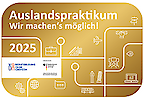Successfully treating chronic depression
Do you suffer from prolonged, chronic depression?
Depressive disorders are chronic in one-third of all cases. This chronic depression is also known as persistent depressive disorder (PDD). Those affected have often already undergone several courses of therapy in the course of their lives, which have not been sufficiently effective.
The “ChangePDD” clinical study aims to help improve psychotherapy for chronically depressed patients. It helps to expand our knowledge of how psychotherapy works so that treatment can be tailored to individual needs.
The aim is to compare the effectiveness of two therapeutic approaches (“BA” and “CBASP”) in patients with chronic depression who have not responded adequately to other forms of therapy.
If you participate, you will receive a modern psychotherapeutic treatment program from a specially trained treatment team.
You will also be making a valuable contribution to the long-term improvement of the treatment of chronic depression. If you are interested, please get in touch!
You can expect 10 weeks of inpatient treatment at the University Hospital Bonn, with one of the two specific treatment programs.
This will be followed by 6 weeks of outpatient treatment in the form of group therapy.
Twelve months later, we will invite you to a follow-up interview. At regular intervals, there will also be study visits during which you will be asked about your symptoms and well-being, among other things.
Behavioral Activation (BA)
BA is a form of established cognitive behavioral therapy that focuses on behavioral activation. It effectively supports the management of depression by promoting positive activities and developing new coping strategies.
Cognitive Behavioral System of Psychotherapy (CBASP)
CBASP is specifically designed for the treatment of chronic depression. It combines approaches from various psychotherapies and places particular emphasis on interpersonal relationships.
You are very welcome to contact us if you would like to participate in the study. Please provide us with a telephone number where we can reach you.
In an initial telephone conversation, we will determine whether you are suitable for our study.

contact person
Coordination:
- Jacob Millerowski
- Luk Eldem
Leading in Bonn:
- Frau Prof. Philipsen
- Frau Prof. Lux (stellv. Leitung)
Contact
mail:
phone: + 49 (0)228/ 287 15577
The aim of this study is to compare the effectiveness of a newer therapeutic method developed specifically for this condition (called ‘CBASP’) with an already established psychotherapy (called ‘BA’) in patients with persistent depression who have not responded adequately to other therapeutic attempts to date.
This clinical study therefore aims to answer the primary research question of which of the two therapeutic approaches is more effective in the patient group with persistent depression. Moderator analyses will also provide information on whether a history of child abuse and BDNF methylation have an influence on the differential effectiveness of the methods. With regard to mediator analyses, we will investigate whether symptom improvement can be explained by a positive change in interpersonal problems in CBASP and an increase in activity in BA. A follow-up examination 48 weeks after the end of treatment will also provide results regarding the sustainability and long-term effectiveness of both treatments.
Finally, the health economic potential of both interventions will be examined using cost-benefit analyses in order to provide important health policy information regarding the economic aspects of implementing both approaches in routine care. This clinical study therefore has the potential to reduce the enormous burden of this serious and costly disease and improve mental health. In addition, moderator and mediator analyses can provide important clues for personalized treatment decisions in patients with persistent depression.
Further links:
This study is funded by the German Research Foundation.


















